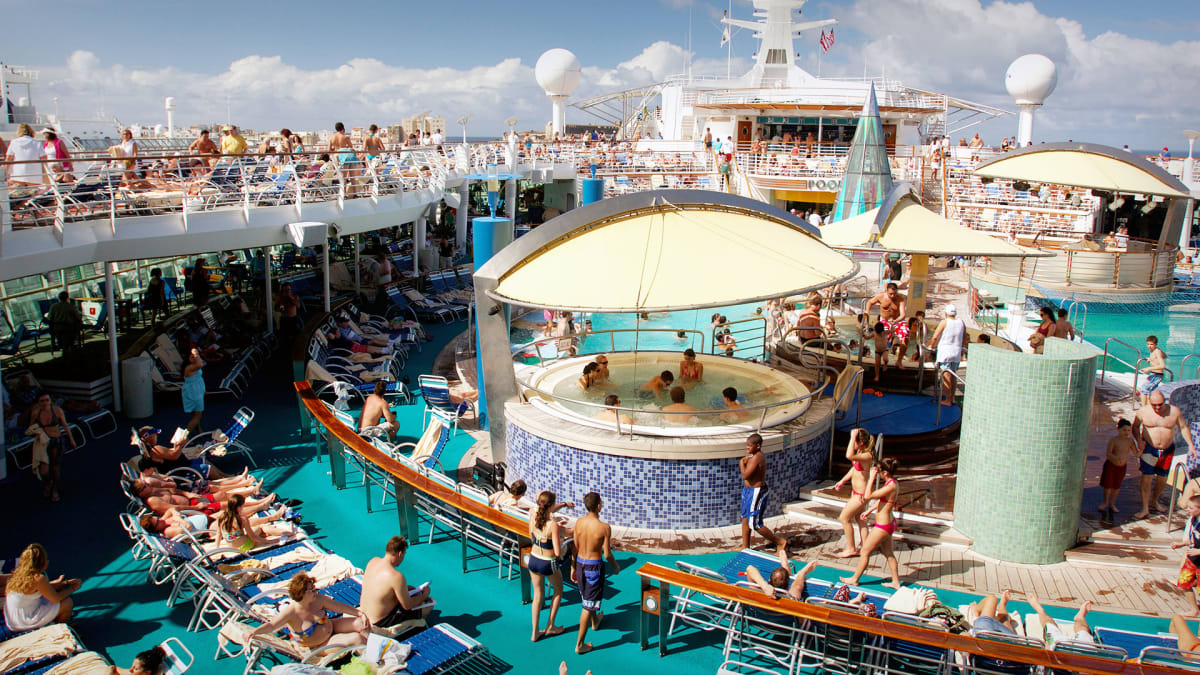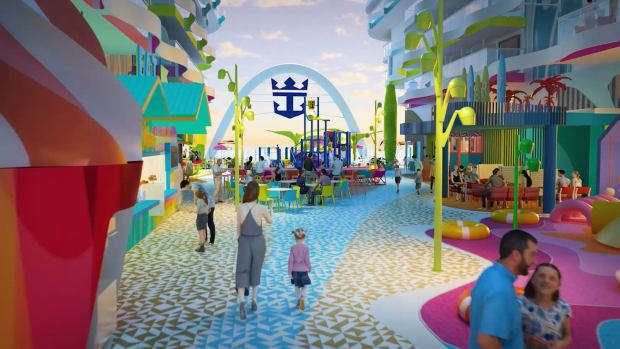
During the early days of what Royal Caribbean called its "Royal Comeback," the return to sailing after the Centers for Disease Control (CDC) dropped its no-sail order, cruises were both sparsely filled and inexpensive. The crowds were partially dictated by social distancing rules, but that wasn't the full story.
Few people take a cruise on a whim. During its covid shutdown Royal Caribbean (RCL) and rivals, including Carnival Cruise Lines (CCL), and Norwegian Cruise Lines (NCLH) kept selling cruises even while they did not have permission to sell. That's because even under normal circumstances, the sales process for filling a cruise ship usually takes a full year.
DON'T MISS: Carnival Cruise Line Considers a First-of-Its-Kind Onboard Change
Few people, of course, were willing to put deposits down on cruises which may not happen (even with very generous cancellation policies). So, when the CDC decided ships could sail again, they had very few passengers, and booking a cruise was very inexpensive.
Even with prices well below normal, some people did not want to meet vaccination requirements while others refused to sail until all covid rules were dropped. Others were also just worried about sailing during a pandemic so Royal Caribbean and its rivals kept prices low while the crowds slowly returned.

Image source: Royal Caribbean
Royal Caribbean Sees Higher Prices In Two Ways
During the first year, maybe year-and-a-half, after its July 2021 return to sailing (a three-night trip on Freedom of the Seas at about 20% capacity) Royal Caribbean pointed out during its earnings calls that while ticket fares were down, onboard spending was up. That made sense because if you book a cruise cheaply, it's easier to justify paying for drink and/or dining packages, excursions, and other extras.
Now, Royal Caribbean CEO Jason Liberty shared during his cruise line's fourth-quarter earnings call that two things are happening which should give potential passengers pause.
"The acceleration of demand, coupled with our team's incredible execution, is also translating into higher revenue and earnings expectations for the full year...We are more than doubling our full-year yield growth expectations to 6.75% to 7.75% on increased expectations for ticket and onboard revenues," he said.
Basically, people are paying more for their cabin and still spending more while onboard (or booking onboard experiences beforehand). Liberty made it clear that the impact of covid has fully ended.
"Pricing was also significantly higher as our commercial apparatus across all channels has been driving quality demand into our vacation ecosystem. The strong wave season resulted in an acceleration of our book position in relation to prior years," he said. "The booking window is now completely back to normal, demonstrating consumers' desire to continue to plan their vacation travel with us well in advance."
So, as a passenger, you need to be aware that you will pay more and you will almost certainly spend more for onboard extras. Liberty's words should also serve as a warning to passengers about monitoring the total cost of their cruise because your fare is generally only a piece of what your trip will cost you.
Royal Caribbean's CEO Sees Change In Consumer Spending
Liberty believes that his cruise line (and maybe his rivals) have benefitted from changing consumer spending habits.
"Secular tailwinds continue to benefit us as consumers continue to shift preferences and spend from goods to experiences, resulting in a strong entertainment and travel spend. This trend continued in the first quarter, where spending on experience was 24% higher than 2019 and double the spend on goods," he shared. "Further, our research shows that consumers plan to continue prioritizing leisure travel over other spend."
This has driven new customers to Royal Caribbean and cruising in general.
"Our addressable market is plentiful and continues to be meaningfully larger than it was in 2019," Liberty added.
The CEO does not see this as a one-time thing. He expects it to continue and help Royal Caribbean expand its base of recurring customers.
"In the first quarter, the percentage of guests who were either new to brand or new to cruise surpassed 2019 levels by a wide margin. The improvements we have made in our commercial capabilities have allowed us to capture quality demand and expand our share of guest wallet," he added. "In the first quarter, about two-thirds of our guests booked some of their onboard activities in advance of their cruise. The comparable figure in 2019 was 48%."







